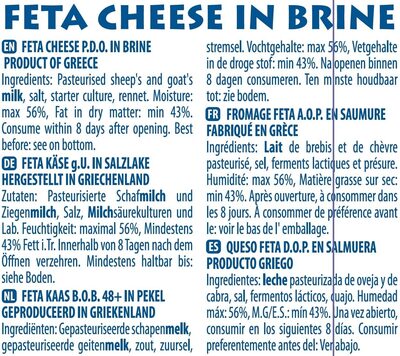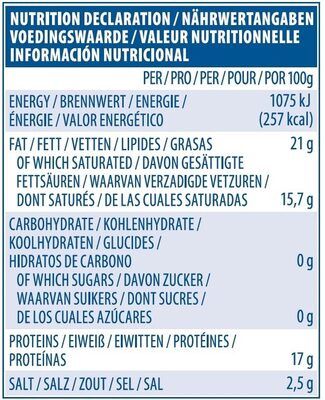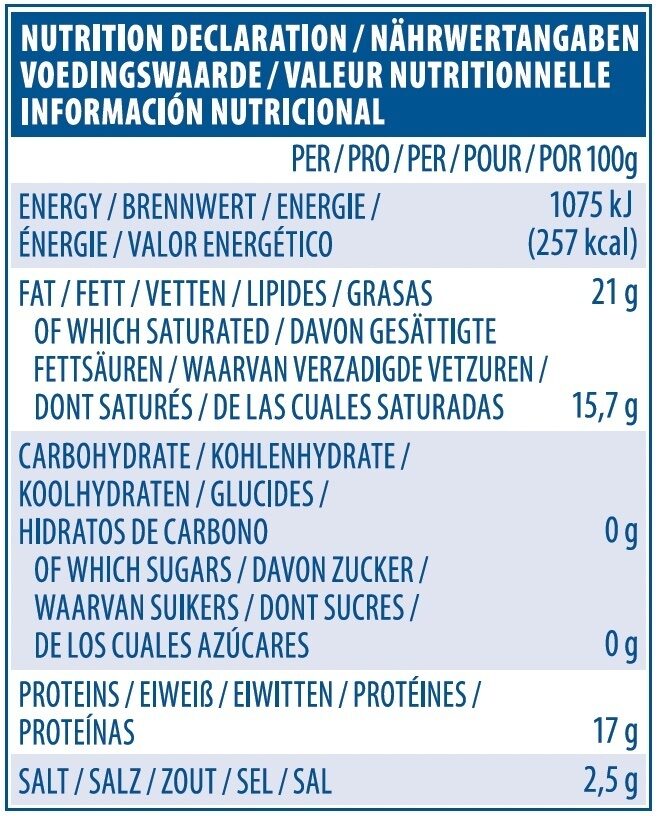Feta cheese (P.D.O.) - Dodoni - 400 g
This product page is not complete. You can help to complete it by editing it and adding more data from the photos we have, or by taking more photos using the app for Android or iPhone/iPad. Thank you!
×
Some of the data for this product has been provided directly by the manufacturer Dodoni SA.
Barcode: 5201168215649 (EAN / EAN-13)
Common name: Feta cheese
Quantity: 400 g
Packaging: Frais, Pastic, Plastic container, Pp-tub
Brands: Dodoni
Brand owner: DODONI SA
Categories: Dairies, Fermented foods, Fermented milk products, Cheeses, Greek cheeses, Sheep's-milk cheeses, Feta, Feta blocs, Fetan, Fromages, Fromages de Grèce, Fromages de brebis, Produits fermentés, Produits laitiers, Produits laitiers fermentés
Labels, certifications, awards:
Vegetarian, No preservatives, Certified by Agrocert, PDO, AOP
Origin of the product and/or its ingredients: Made in Greece
Origin of ingredients: Greece
Producer: DODONI SA
Manufacturing or processing places: Grèce, Ioannina, Greece
Traceability code: GR 20.2.200 EC
Link to the product page on the official site of the producer: https://es.dodoni.com/nuestros-productos...
Stores: Delhaize, Woolworths, Coles, El corte inglés, Carrefour, Alcampo, Ametller Origen, Eroski, Caprado, Uvesco
Countries where sold: Australia, Belgium, Cyprus, France, Netherlands, Spain, United Kingdom
Matching with your preferences
Environment
Carbon footprint
Packaging
Transportation
Other information
Recipe idea: https://es.dodoni.com/recetas/pasta-feta/
Report a problem
Data sources
Product added on by tconst
Last edit of product page on by bertusdendroef.
Product page also edited by aleene, archanox, autorotate-bot, countrybot, desan, ecoscore-impact-estimator, eleni, geodata, inf, kaye65, kiliweb, openfoodfacts-contributors, org-dodoni-sa, packbot, quechoisir, rednut, swipe-studio, yuka.UnFRY09ZSWErZkpYdk13RDFSbk53TmRGKzgvemN6cnJPdk1XSWc9PQ, yuka.Wlpzd05aczcrS2d6eTh3RjlTUG54NGhZdzgrdmVIM3ZJTTBCSWc9PQ.










